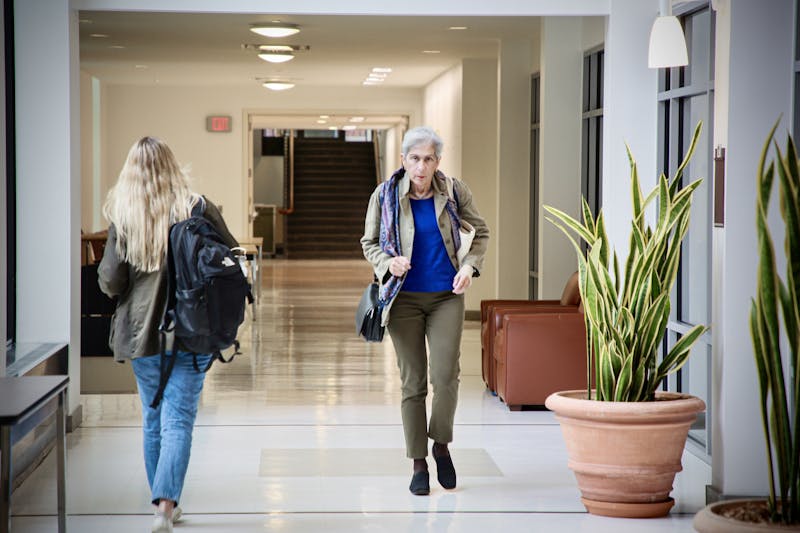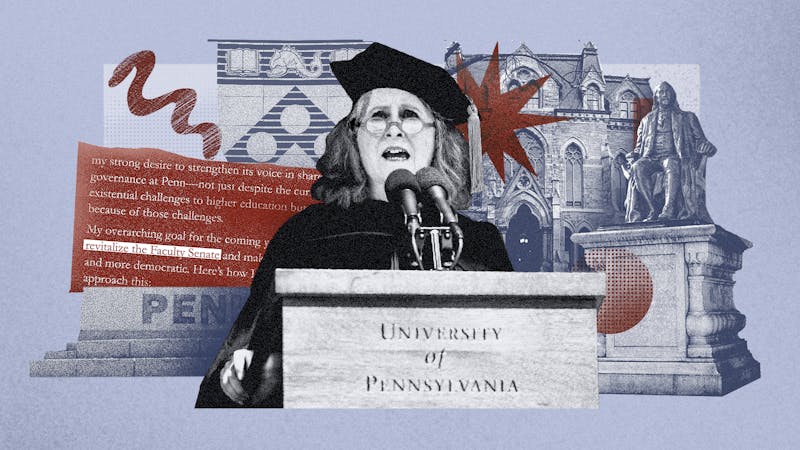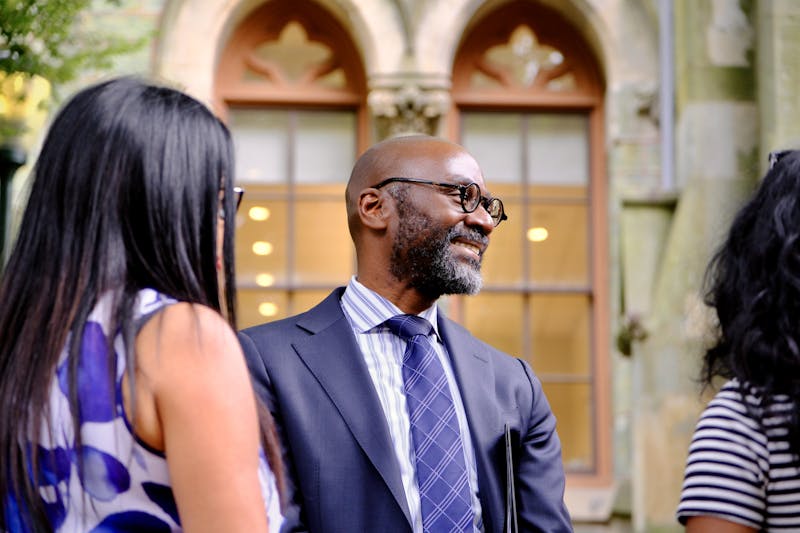
It's hard to think about the Eastern Orthodox Christian tradition having anything to do with the Big Bang theory, but the two beliefs converged on Thursday, Oct. 25.
Penn Astrophysics Professor Chung-Pei Michele Ma addressed a small group of students, faculty members and alumni in the Newman Center. Her speech, entitled "What's the Big Deal About the Big Bang?" explored the development of the theory and the nature of the universe.
"The realms of religion and science are compatible," said Father Alexander Webster, the Eastern Orthodox chaplain at Penn, who organized the event. "I can affirm everything that [Ma] said in terms of the evolution of the universe and I can see that being compatible with faith."
According to Ma, the Big Bang is a cosmic explosion that occurred 15 billion years ago and led to an expansion of the universe.
"Given the chaotic world today, sometimes we get a different perspective by thinking about where we are in the universe. The fact that we dare to ask these questions in a scientific way is remarkable."
Webster described the lecture as a way to provide students with an "alternative perspective [that] need not be religious."
He went on to describe Ma as someone "humble enough to realize the limits of science" in explaining the origins of the universe.
Ma, who will leave Penn at the end of the semester to continue her studies at the University of California at Berkeley, is a well-known expert in the fields of theoretical astrophysics and cosmology.
"The minute you stop thinking ahead, that will stop the advancement of human culture," Ma said. "Doesn't it bother you that you don't know what the universe is made of?"
Alexis Decerbo, a Wharton junior and President of the Orthodox Christian Fellowship described the Big Bang theory as "an ethical topic that might be of interest for religious purposes."
Tom Finnegan, a 1971 Graduate School of Arts and Sciences alumnus with a background in physics and astronomy, said he wanted to hear more about complex scientific ideas within the general public.
"The scientific community is becoming more conscious of the need to reach out and explain the work its doing to maintain support," Finnegan said.
Ma is both an Alfred P. Sloan Foundation Fellow and a Cotrell Scholar, and won the University's Lindback Award for Distinguished Teaching in 1999.
The event was sponsored by the Penn Orthodox Christian Fellowship as the second in a series of Distinguished Guest Lecture Series.
The Daily Pennsylvanian is an independent, student-run newspaper. Please consider making a donation to support the coverage that shapes the University. Your generosity ensures a future of strong journalism at Penn.
DonatePlease note All comments are eligible for publication in The Daily Pennsylvanian.







